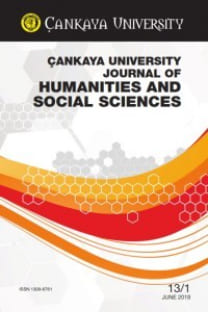Deconstruction of the Phallogocentric View in Julian Barnes’s Flaubert’s Parrot
Barnes, Flaubert’s Parrot, phallogocentrism, deconstruction feminism,
___
- Barnes, Julian. Flaubert’s Parrot. Vintage, 2012.
- Beauvoir, Simone D. The Second Sex. Translated by Constance Borde and Sheila Malovany-Chevallier, Vintage, 2011.
- Butler, Judith. Gender Trouble: Feminism and the Subversion of Identity. Routledge, 1990. Cixous, Hélène. “The Laugh of the Medusa.” Feminisms: An Anthology of Literary Theory and Criticism, edited by Robyn R. Warhol and Diane P. Herndl, Rutgers University Press, 1997, pp. 347-363.
- Cixous, Hélène, and Catherine Clément. The Newly Born Woman. I. B. Tauris, 1996.
- Derrida, Jacques. Positions. Translated by Alan Bass, University of Chicago Press, 1981.
- Derrida, Jacques. Of Grammatology. Translated by Gayatri C. Spivak, Johns Hopkins University Press, 1997.
- Derrida, Jacques. “Différance.” Literary Theory: An Anthology, edited by Julie Rivkin and Michael Ryan, 2nd ed., Blackwell Publishing, 2004, pp. 278-299.
- Feder, Ellen K., and Emily Zakin. “Flirting with the Truth: Derrida’s Discourse with ‘Woman’ and Wenches.” Derrida and Feminism: Recasting the Question of Woman, edited by Ellen K. Feder et al., Routledge, 1997, pp. 21-53.
- Freud, Sigmund. “Mourning and Melancholia.” On Freud’s “Mourning and Melancholia,” edited by Leticia G. Fiorini, Thierry Bokanowski, and Sergio Lewkowicz, translated by James Strachey, Karnac Books, 2009, pp. 19-34.
- Irigaray, Luce. Speculum of the Other Woman. Translated by G. C. Gill, Cornell University Press, 1985.
- Kearney, Richard, and Mara Rainwater, editors. The Continental Philosophy Reader. Routledge, 1996.
- Kristeva, Julia. Powers of Horror. Translated by Leon Samuel Roudiez, Columbia University Press, 1982.
- Richards, K. M. Derrida Reframed: Interpreting Key Thinkers for the Arts. I. B. Tauris, 2008.
- ISSN: 1309-6761
- Yayın Aralığı: Yılda 2 Sayı
- Başlangıç: 2004
- Yayıncı: Çankaya Üniversitesi
Deconstruction of the Phallogocentric View in Julian Barnes’s Flaubert’s Parrot
Memory, Identity and Old Age: The Sense of an Ending as the Story of Ageing
The Sense of a Never-Ending Delusion
Mourning and Melancholy in Julian Barnes’s Levels of Life and The Only Story
Irony and (Dis)Obedience to Authority in Julian Barnes’s The Noise of Time
